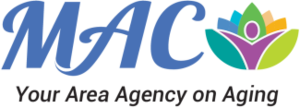How to recognize, report Elder Abuse
- June 9, 2023

June 15 is World Elder Abuse Awareness Day.
Education is a critical tool in the prevention of elder abuse. The National Center on Elder Abuse identifies the following types of elder abuse:
PHYSICAL – Use of force to threaten that may result in injury, pain or impairment.
Signs/symptoms include:
Bruises, black eyes, welts
Broken bones
Open wounds, cuts, punctures, untreated injuries
Sprains, dislocations
Broken eyeglasses/frames
Caregiver’s refusal to allow visitors to see an elder alone
FINANCIAL – Improper use of an elder’s funds, property or assets.
Signs/symptoms include:
Sudden changes in bank account, including an unexplained withdrawal of large sums of money
Additional names on an elder’s bank signature card
Abrupt changes in a will
Unexplained disappearance of funds
EMOTIONAL – Verbal attacks, insults, threats, intimidation, humiliation; isolating an elderly peson from family and friends.
Signs/symptoms include:
Emotionally upset or agitated
Withdrawn
Unusual behavior typically attributed to dementia
SEXUAL ABUSE – Non-consensual sexual contact of any kind with an elderly person.
Signs/symptoms include:
Bruises around the breasts or genital area
Unexplained sexually transmitted disease or genital infections
Torn or bloody under clothing
NEGLECT – Failure or refusal to provide for an older person’s safety, physical or emotional needs.
Signs/symptoms include:
Malnutrition, untreated bed sores, poor personal hygiene
Untreated health problems
Unclean or unsafe living conditions
ABANDONMENT – Desertion of an elderly person by an individual who has assumed responsibility for providing care for an elder.
Signs/symptoms include:
Desertion of an elder at a hospital, nursing facility or similar institution, or at a shopping center or other public location
How to report suspected elder abuse
In the case of suspected elder abuse, and if the senior is living in the community or an assisted living facility, contact your local law enforcement agency and Adult Protective Services in the senior’s county of residence for help.
In the case of suspected abuse in a nursing home, call the Ombudsman Program at MAC Inc., at 410-742-0505, ext. 104.
Anyone can report suspected abuse and callers may remain anonymous.
For more information on elder abuse, visit the Maryland Department of Aging Website.
Updated June 9, 2023
Information is from the National Center on Elder Abuse
